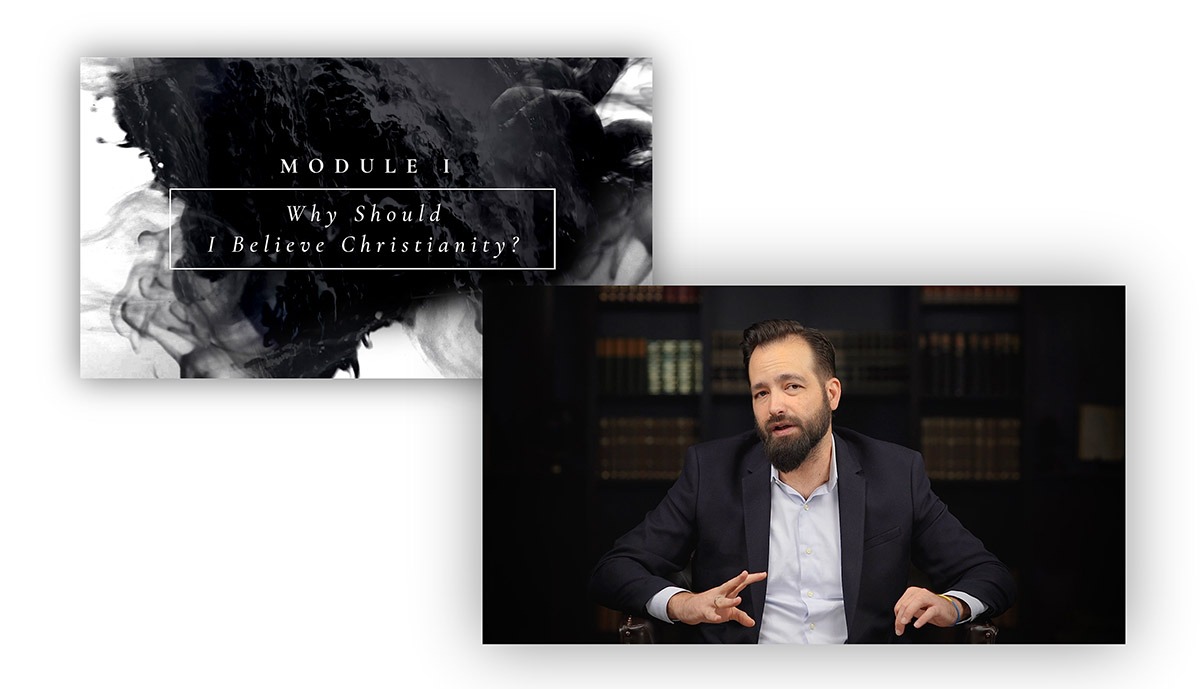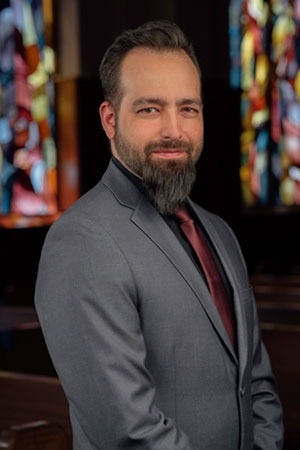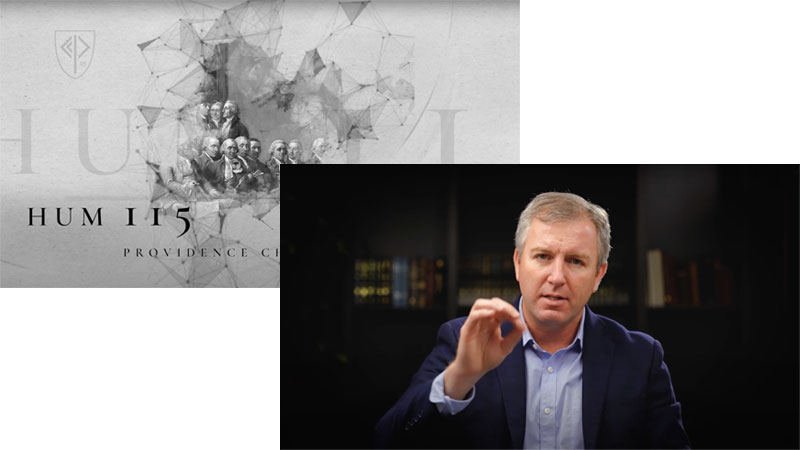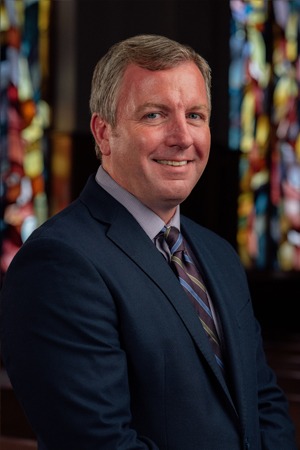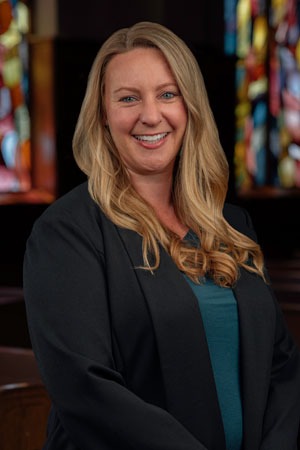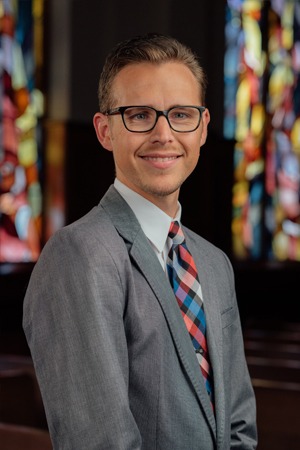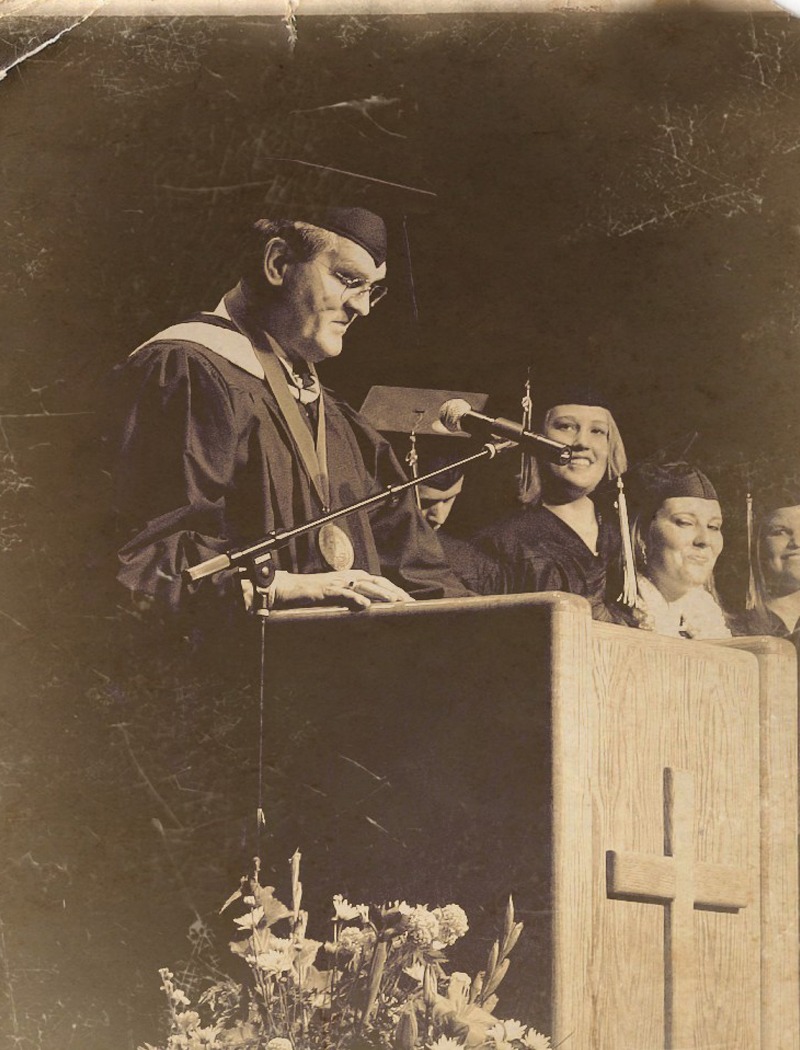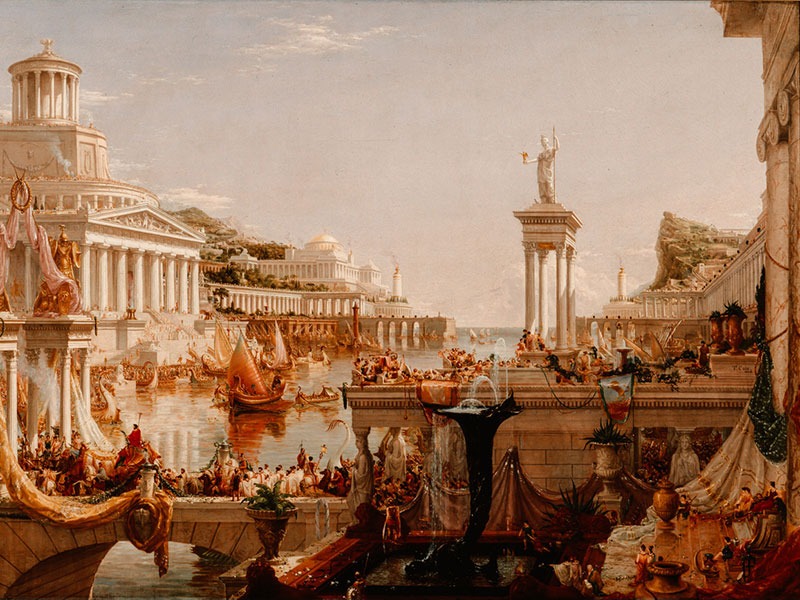By Dr. David E. Alexander
The following article is a transcript from an episode of Providence Christian College’s podcast, The Virtuous Mind.
What pops in your head when I say, “The liberal arts?”
The liberal arts and the humanities have been getting a bad wrap since at least Socrates’ time. But nowadays their reputation has suffered for new reasons.
For thousands of years, the liberal arts have been criticized for their impracticality. They may be fun to talk about on the weekend or over drinks with friends but the real movers and shakers of the world are found in other disciplines. Maintaining a liberal arts dedicated curriculum and college is a hard sell, in part, because lots of people see education primarily as transactional—get a degree to get a good job. Since the employment payoff of a robust liberal arts education is often perceived as slim, those who see education as primarily transactional, see the liberal arts as not worth the price.
But new reasons for worrying about the liberal arts have recently emerged. Much of the divide in our country and Western culture in general seems traceable, in part, to the liberal arts. So, what should we make of the liberal arts? And what should we think about this new concern about the liberal arts? Perhaps Christians and Christian colleges and universities should reduce or even eliminate their liberal arts offerings and focus on other disciplines.
I will attempt to address some of these issues by focusing on some of the new concerns about the liberal arts and humanities:
Many thinkers, both secular and Christian, have noted that we are living a period of rapid and monumental change. Technology not only changes itself, but it changes nearly everything else. The values that were once held either genuinely or superficially are being replaced with values that would have seemed bizarre just a short time ago. From criminal justice to sexual practice, from education to attention spans, changes are occurring at such a rapid rate that it is difficult to know what might come next other than the general truth that whatever comes next will likely be even more bizarre than what preceded it. In such a situation, it is, perhaps natural to become disoriented and disillusioned. It is also natural to look for a culprit and seek to destroy it. It may be that such a reaction helps to explain the demise and even abandonment of the liberal arts in Christian colleges and universities.
As many have observed, much of the current explosive force wreaking havoc on the culture can be traced to the halls of colleges and universities in general, and to the liberal arts and humanities in particular. From critical race theory to critical queer theory, from DEI to deconstructions of faith, liberal arts and humanities departments across the country are responsible for much of the radical and seismic cultural shifts taking place. It seems undeniable that fields long thought irrelevant to our lives and to the public order are flexing their collective muscle showing, ironically for many, that ideas really do matter; indeed, they matter more than many cared to admit. The so-called pragmatic man, the regular Joe who might mock the majors that produce baristas is now living in a world where those majors seem to be in control of everything. It makes some sense then to think that the only way out is to get rid of the culprit. If the liberal arts and the humanities are responsible for the disease, then amputation is necessary.
I not only understand such a reaction, but I also sympathize with it. It may very well be better for the souls of students to never darken the doors of the relevant classrooms, than to risk exposure. But one serious problem with this surgical response is that it is simply not possible to permanently amputate the diseased members. They will grow back, and they will do so almost immediately. The reason is simple: the main subjects explored in the liberal arts and the humanities are impossible to avoid. So, pretending that they can be cut away is akin to pretending that we can survive toxic air by holding our breath; the outcome of either strategy is death.
What we need to recognize is that part of the explanation for why we are in the current cultural crisis is that we have perverted the liberal arts and the humanities and the perversion or distortion of great goods results in great evils. So, those who recognize that our current situation is dire and that the liberal arts and humanities are at least partly to blame for it, should recognize that the liberal arts and humanities have been crucially important and valuable all along. It is their distortion that has resulted in the crisis, not their existence. The only honest and viable response is their repair not their death.
And Christians of all people should be the first to see this. We believe that knowing God, that being in an intimate relationship with God is the purpose of life. We also believe that humans are divine image bearers. Out of everything in the whole of creation, humans reveal the divine nature more fully and more specifically than anything else. When we put those two beliefs together, the implication is that investigating humans must play a huge role in knowing God, in fulfilling our purpose. So, the humanities are crucial, essential even, for maintaining and growing our relationship with God. The reason that perverted humanities and liberal arts are so bad is that they pervert the divine image which is one of the most obvious ways to pervert the very nature of God. If you get humans wrong, you are bound to get God wrong, but if you get humans right, you are bound to get God right. Indeed, it is not possible to understand human nature accurately without seeing that it points to and reveals God.
Consider that famous passage right at the beginning of Calvin’s Institutes:
“Our wisdom, in so far as it ought to be deemed true and solid Wisdom, consists almost entirely of two parts: the knowledge of God and of ourselves. But as these are connected together by many ties, it is not easy to determine which of the two precedes and gives birth to the other. For, in the first place, no man can survey himself without forthwith turning his thoughts towards the God in whom he lives and moves; … On the other hand, it is evident that man never attains to a true self-knowledge until he has previously contemplated the face of God, and come down after such contemplation to look into himself.”
Our views about humans are directly related to our views about God given the kind of being we are. Knowing God intimately involves knowing ourselves, knowing divine image bearers, and the precise way in which they are set apart from everything in the universe. To neglect this or worse to hand it over to those who want nothing to do with God, is, I am afraid, to accept an impoverished or distorted view of God.
So, the solution simply cannot be to ignore or neglect the humanities and the liberal arts. Rather, it must be to reform them.
The restoration of the humanities and the liberal arts can and should be taking place in Christian institutions. Christians did this work at another time in history. Christians are largely responsible for the preservation of various ancient works during late antiquity and the early medieval period. There are various reasons for this, but one that is worth elaborating upon is that Christianity teaches that everything other than God was created by God and as such is fundamentally good. This does not mean, of course, that created things cannot become bad, but it does imply that no created thing can become completely bad, bad through and through with no trace of goodness whatsoever. So, one of the essential doctrines of Christianity, namely, the doctrine of creation, implies that Christians should seek to preserve the creation while simultaneously attempting to restore it in light of God’s revelation of himself both in the world and in his holy word with the power of the Holy Spirit.
The doctrine of creation also implies that our attitudes towards the past should include a healthy appreciation of it. Given that God is essentially perfectly good, there cannot be anything in all of creation that is wholly and completely bad. And that includes the past. When we investigate history we are investigating, in part, the actions of a perfectly good God. Again, this does not imply that every event or human in the past is good. Evil is possible in a creation brought about and sustained by a perfectly good and perfectly powerful God. But it does imply that God’s goodness is made known in history and in the persons who helped to bring about our present state. So, to know God more deeply and accurately, we must attempt to uncover his revelation of himself in history, in historical persons, and in the various things they said and did. Since we know that it is not possible for anything in all of creation to be completely bad, we know that we are sure to uncover all sorts of goods, all sorts of truths as we conduct our investigations.
Consequently, the Christian liberal arts and humanities recoils from the type of cancelations of the past that many are currently engaged in. Not only does such an attitude to the past betray the hubris of the present, it is guaranteed to cancel, to obscure the goodness of God and the goodness of his creation. Furthermore, such an attitude is quite simply a failure of love.
We are living in a curious time. The major issues of the present that can only be made full sense of within a Christian framework are being championed by many who reject that framework. Demands for justice and apparent tautologies like ‘love is love’ are used as bludgeons to push behaviors and lifestyles that would have made progressives of the past blush. But a defining feature of ideologies that attempt to appropriate truths that only make complete sense within Christianity, is that those ideologies wind up with a thin and shrunken version of the original. So, the demands for justice from the secularist wind up as demands not for justice full-stop, but for truncated justice, justice applied here not there, to those not them. And the appeals to love from the same crowd wind up reducing all forms of love to one of its species—usually the romantic or sexual species—But love and justice are far more expansive and demanding than meets the eye of today’s sitcom or pop music.
For example, and returning to one of the themes above, Christian love is partly grounded in neighbor love. It requires seeing every image-bearer as though they are one’s self. That applies to past image bearers and present ones. Loving our neighbor requires then that we love those who came before us as our neighbors. It requires that we see their sins in the same way we see ours, that we see their triumphs and accomplishments in the same way that we demand others see ours. Expanding of this theme, CS Lewis, writes in the Screwtape Letters that
“[God] wants to bring … man to a state of mind in which he could design the best cathedral in the world, and know it to be the best, and rejoice in the fact, without being any more (or less) or otherwise glad at having done it than he would be if it had been done by another. [God] wants him, in the end, to be so free from any bias in his own favour that he can rejoice in his own talents as frankly and gratefully as in his neighbour’s talents—or in a sunrise, an elephant, or a waterfall. He wants each man, in the long run, to be able to recognise all creatures (even himself) as glorious and excellent things.” (Screwtape Letters, Letter 14)
That is most certainly not the picture of justice or love that our current culture propagates. When we get the nature of humans wrong, we are bound to get justice wrong. When we get the nature of humans wrong, we are bound to get love wrong. Justice and love, two of the most marvelous and powerful features of humans and God wind up, in the hands of today’s influencers, becoming nearly identical to injustice and hate.
We now have three inter-connected justifications for the incredible importance of the liberal arts and the humanities. First, deep study of distinctly human traits is intimately connected to knowing God more fully. Since knowing God is our ultimate purpose, it follows that the liberal arts and the humanities are crucial for fulfilling our purpose. Second, the doctrine of creation implies that nothing that God has made is completely bad or evil. Thus, God’s goodness is revealed in all things, not just present things, not just the things that interest me, but all things. Since, we should desire and seek to grow our understanding of God and his goodness, we cannot neglect his revelation in creation and in history. So, the Christian liberal arts include studying Holy Scripture as well as unholy scriptures, the great saints and tragic sinners. Thirdly, neighbor love implies that what I think about pagan Plato better be grounded in an appreciation of the fact that pagan Plato bears the divine image.
The attempt to eliminate or reduce the liberal arts is an excellent example of throwing the baby out with the bathwater. If you’ve got dirty bathwater, then by all means, get rid of it. But if you toss out the baby by doing so, then you’ve got a different and much worse kind of dirt to now get rid of. Similarly, if we’ve got dirty liberal arts and humanities departments, then by all means get rid of the dirt. But if we toss out the great goods that they are meant to illuminate by doing so, then we’ve got a different and much worse kind of dirt to get rid of.
There is no doubt that the bathwater is dirty. We must toss it out and replace it with the clean water of a genuine Christian liberal arts and humanities education that is grounded in biblical truth and oriented towards our ultimate goal of knowing God.
That is, and always will be, the goal of Providence Christian College.
ABOUT THE AUTHOR:
Dr. David E. Alexander is the Dean of Academics and Associate Professor of Philosophy at Providence Christian College. Alexander has published two books: Goodness, God, and Evil and Calvinism and the Problem of Evil (with Daniel Johnson). Additionally, he has published articles philosophy or religion, metaphysics, and the history of philosophy. Alexander is the host of Providence Christian College’s podcast, The Virtuous Mind, a program that discusses all facets of the human experience and the liberal arts from a biblical worldview.
